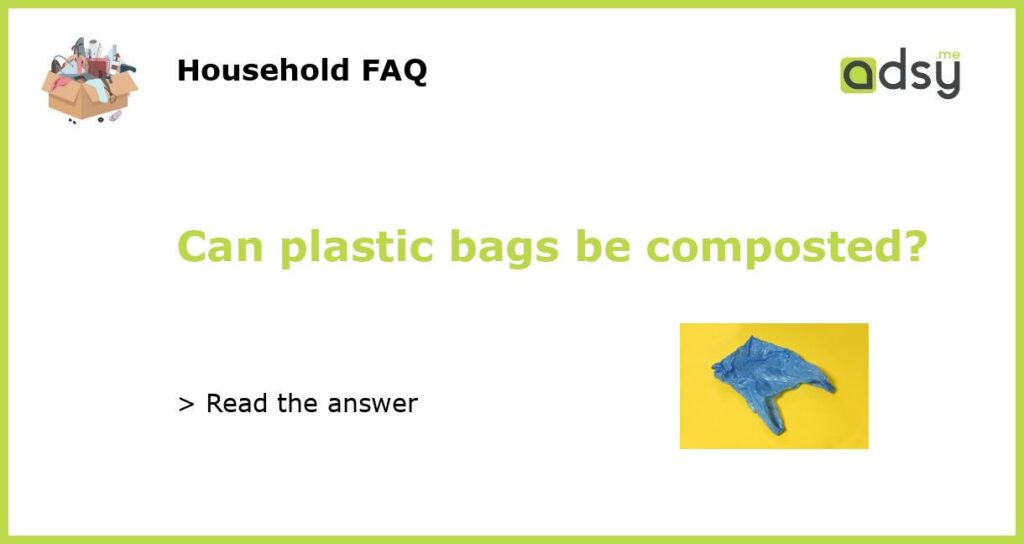Plastic Bags and Composting: Is It Possible?
Plastic bags have become a widespread environmental concern due to their long decomposition time and negative impact on ecosystems. Many people are looking for alternatives to reduce plastic waste, including composting. Composting is a natural process that helps turn organic waste into nutrient-rich soil. However, the question remains: can plastic bags be composted? Let’s explore this topic further.
The Problem with Plastic Bags in Composting
Plastic bags are primarily made from polyethylene, a synthetic material derived from fossil fuels. This material is not easily broken down by natural processes like composting. When plastic bags are added to compost piles, they can take hundreds of years to decompose, clogging the system and causing harm to the environment.
Another concern is the release of microplastics into the soil and water. As plastic bags break down into smaller pieces, they can release tiny plastic particles into the compost, which can find their way into the food chain. This can have detrimental effects on plants, animals, and ultimately, human health.
Alternative Solutions
While plastic bags are not suitable for traditional composting, there are alternatives that can help reduce their environmental impact. One option is to use biodegradable or compostable bags made from materials like plant starch or cellulose. These bags are designed to break down quickly in composting systems, reducing the negative impact on the environment.
However, it’s important to note that not all biodegradable or compostable bags are created equal. Some may only break down under certain conditions, such as high temperatures found in industrial composting facilities. Others may require specific handling to decompose properly. Therefore, it’s crucial to look for certifications like the “compostable” label and follow specific recommendations for proper disposal.
Proper Disposal of Plastic Bags
If you have plastic bags that are not suitable for composting, it’s important to dispose of them properly to minimize their impact on the environment. Many grocery stores and retailers have designated drop-off points for plastic bag recycling. These bags can then be recycled into new plastic products.
Alternatively, reducing the use of plastic bags altogether is the most effective way to combat their negative environmental impact. Opt for reusable bags made from canvas, jute, or other durable materials. These bags can be used multiple times, reducing the demand for plastic bags and preventing further waste.
The Importance of Education and Awareness
While composting plastic bags may not be a viable solution, it is essential to educate ourselves and others about the environmental impact of plastic bags. By spreading awareness and supporting sustainable alternatives, we can collectively reduce plastic waste and protect our planet.
Additionally, advocating for stricter regulations and policies on plastic bag usage and disposal can make a significant difference. Encouraging businesses and governments to implement plastic bag taxes or bans can help shift consumer behavior towards more sustainable choices.
While plastic bags cannot be composted in traditional composting systems, there are environmentally-friendly alternatives available. Biodegradable or compostable bags made from plant-based materials can be a suitable option for those looking to minimize plastic waste. However, proper certification and disposal methods must be followed to ensure their effectiveness. Ultimately, reducing the use of plastic bags and promoting sustainable alternatives is the most effective way to combat their negative environmental impact.






